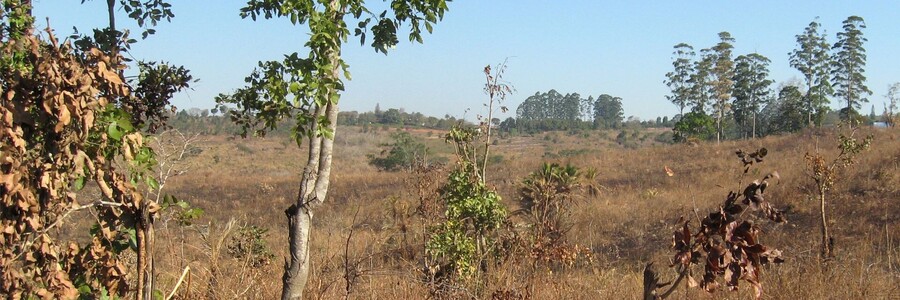Malawi is still particularly hard hit by the effects of climate change today. This is particularly problematic for those Malawians who work in agriculture - almost 80 % of the population. This already difficult situation is aggravated by political instability, corruption, but also by high population growth and a lack of health and education systems.
Agriculture in Malawi
Malawi's agriculture is characterised by the cultivation of maize, soya, palm oil or wheat in monoculture. In order to generate sufficient income, farmers often focus on rapid growth and the quick sale of the products - the use of fertilisers and pesticides is thus the order of the day. The result: the soil degrades, i.e. becomes infertile after only a short period of cultivation. Healthy soil, however, is important to be able to continue farming successfully.
In order to obtain this additional fertile soil, existing forests are therefore deforested and converted into agricultural land. The resulting problems, in turn, harm agriculture in the long term: deforestation makes the soil drier and drier, and cultivation becomes more and more difficult. More and more places can no longer be inhabited, as agriculture, which is essential for survival, can no longer be practised. The inhabitants have to move on and in the long run desert landscapes are formed.
Our work on the ground
To counteract these problems, we have supported more than 70 farming families in the first two project phases to convert their agricultural cultivation methods to dynamic agroforestry. However, the problems outlined above are often still present in our project area, so that in the third project phase we are continuing to train the farmers in the cultivation method, provide advice and support in case of questions, and supervise the application of the method in practice on the respective agricultural plots. Together with the dissemination of the Nafagaz cooker, a more sustainable agriculture can be created that closes cycles and saves forests from deforestation.
Support our project and donate for the continuation of the project!

